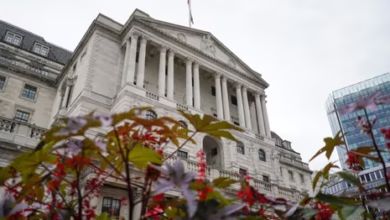Economic CrisisEconomic Growth
Despite Inflation, American Consumer Confidence Holds Steady

Despite inflations and economic shift, American Consumer Confidence holds steady..
In a world where economic indicators often spell uncertainty, the latest report from the University of Michigan brings a glimmer of hope. As of February 2024, the consumer sentiment index nudged up to 79.6, a testament to American resilience in the face of inflationary pressures and a shifting economic landscape.
This modest increase underscores a broader narrative of stability and cautious optimism among U.S. households, despite a backdrop of global economic challenges and domestic policy debates.
The Pulse of the Nation: Consumer Sentiment in Focus
The strength of the American economy, as often noted, lies in the hands of its consumers. The recent uptick in the University of Michigan’s consumer sentiment index is more than just a number it’s a reflection of a collective belief in the economic future. Even as retail sales experienced an unexpected dip in January, this sentiment points towards an enduring confidence bolstered by a slowdown in inflation and robust labor markets.

Notably, this optimism isn’t uniform across the board; political affiliations have cast a partisan shadow over economic perceptions, with Democrats generally exhibiting higher levels of confidence compared to their Republican counterparts. Despite these divides, an underlying faith in the economy’s fundamentals remains intact, hinting at a possible increase in consumer spending, which is crucial for sustaining economic growth.
A Complex Economic Tapestry
The narrative of American consumer confidence is woven against a backdrop of significant financial maneuvers and strategic shifts in the global market. The acquisition of Discover Financial Services by Capital One for a staggering $35.3 billion in an all-stock deal, along with Alibaba Group’s pivot towards expanding its international e-commerce footprint, reflects a broader trend of adaptation and resilience among major players.
These developments come at a time when the ‘Magnificent 7’ companies have come under scrutiny for their outsized influence on U.S. and global stock markets, raising questions about market concentration and its implications for economic stability. Amid these dynamics, the report sheds light on the nuanced challenges of maintaining the Federal Reserve’s 2% inflation target, a goal that appears increasingly complex amidst fluctuating inflation expectations.
Looking Ahead: Economic Resilience Amidst Uncertainty
As the American economy navigates through the headwinds of higher-than-expected inflation readings and geopolitical tensions, particularly in the Middle East, the resilience of consumer sentiment offers a beacon of hope. Disruptions in energy markets and potential trade disruptions loom large, yet optimism persists regarding the diversification of the energy sector and supply chains, which may mitigate the impact on U.S. inflation.
This landscape of challenges and opportunities underscores a critical point: the American consumer’s outlook remains a pivotal gauge of economic health and a driver of growth. With improvements in real wages, wealth, business creation, and job opportunities contributing to a brighter economic outlook, there’s a cautious yet palpable sense of hope as we move forward.
In conclusion, the American economy stands at a crossroads, marked by challenges and bolstered by enduring consumer confidence. As we navigate the complexities of inflation, market dynamics, and global uncertainties, the spirit of resilience and optimism among U.S. consumers serves as a vital underpinning for the journey ahead. The slight increase in consumer sentiment, as reported by the University of Michigan, is not just a statistic it’s a reflection of a nation’s enduring faith in its economic future.



